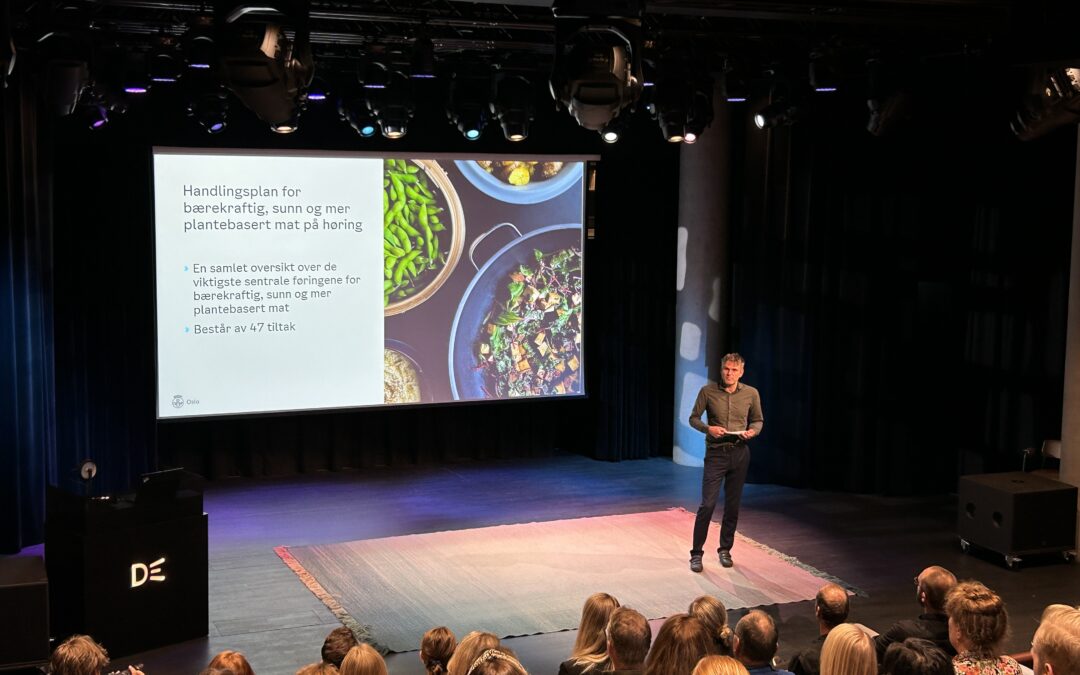140 participants met last week at Deichmann library in Bjørvika to learn more about sustainable, healthy and more plant-based food in Oslo municipality. From cooks, buyers, project managers and nursery school managers, all participants were inspired by how we can promote good and healthy food experiences for our residents.
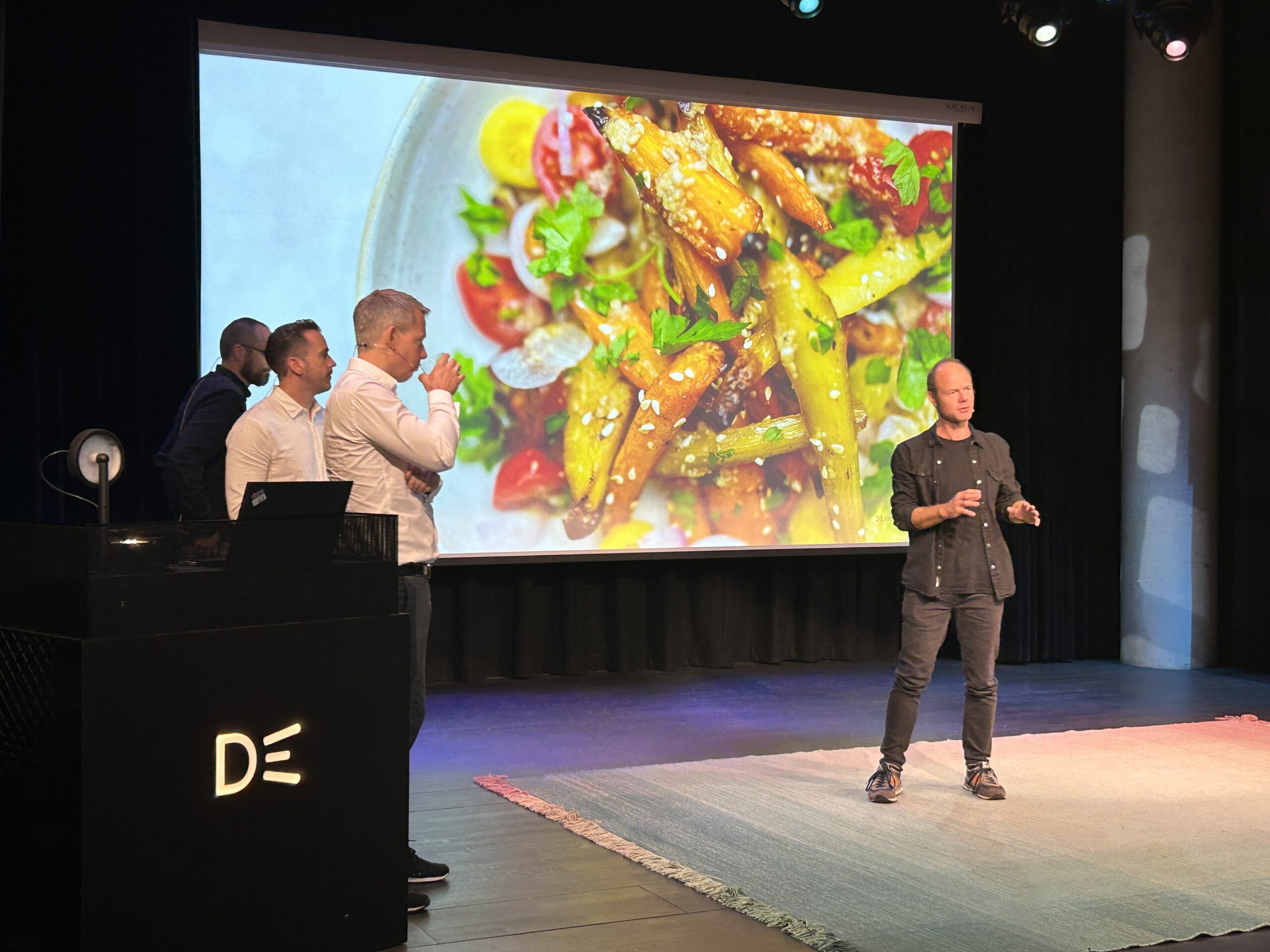
Bob Van Oort (right), food and climate researcher in Cicero, could tell that the measures taken by Oslo municipality are important.
Oslo’s Agency for Development and Improvement organized an all-day seminar on sustainable food in Oslo municipality on Thursday the 31st of August. It was opened by Vice Mayor for Finance Einar Wilhelmsen, who announced that an action plan for sustainable, healthy and more plant-based food was just around the corner.
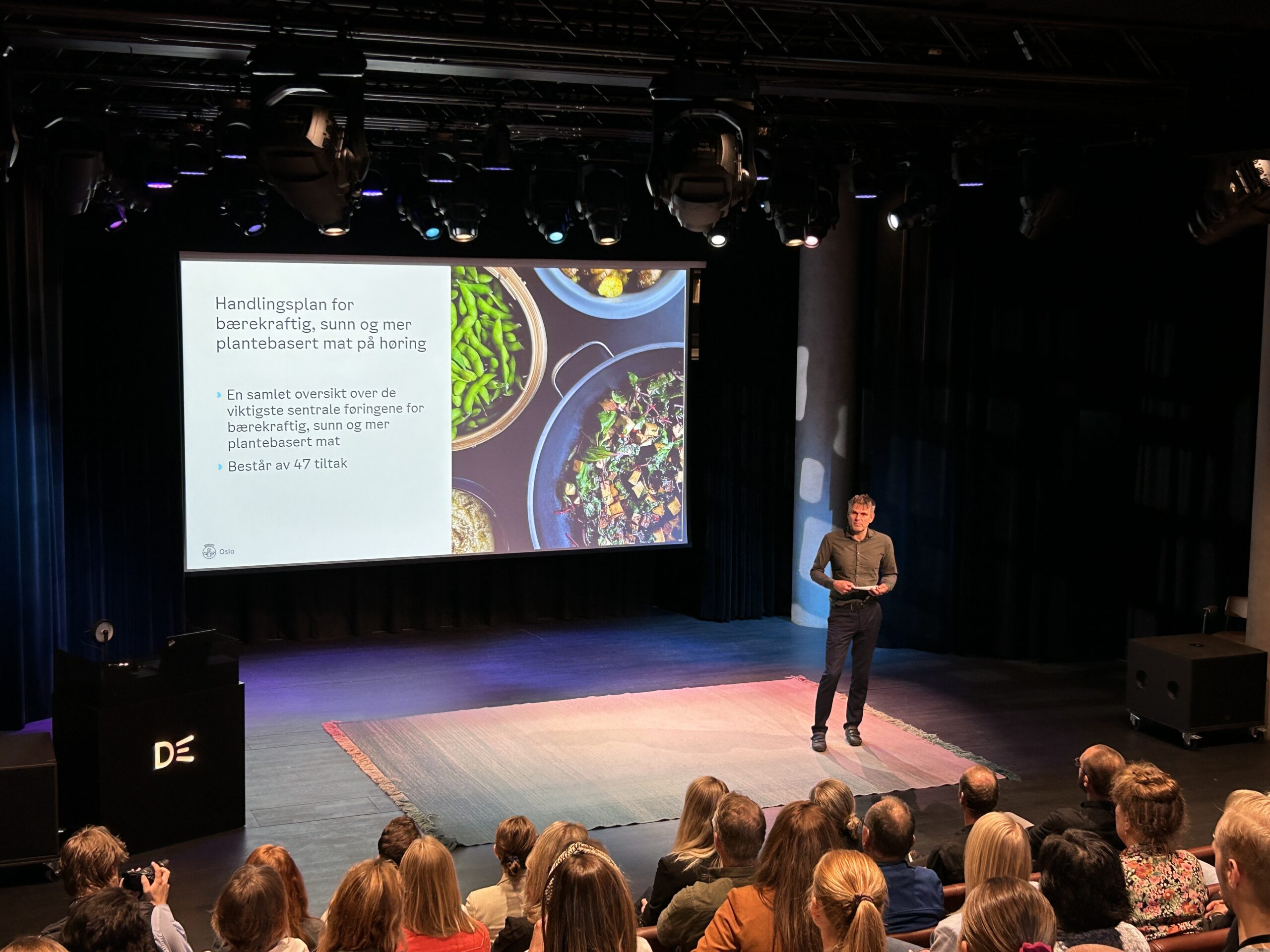
We are not going to cut out meat, we are going to halve it and reduce food waste. That means we have to focus on skills development, Einar Wilhelmsen told the audience.
Researchers Bob Van Oort from Cicero and Arve Hansen from the University of Oslo have both researched food and eating habits. They gave lectures on the importance of more sustainable food. A question from the audience was whether short-range meat was better for the environment than avocados. A flat no was the answer from the researchers.
It is in Norwegian food culture to eat meat, but not to eat massive amounts of meat, Hansen pointed out. Among other things, he has done a study on Norwegians’ eating habits. According to his statistics, there are more people who say they want to cut down on meat consumption, but the change is still not seen in the statistics. We actually eat more meat.
What we do, matters
Oslo municipality buys food for approx. 250 million Euros a year, and has a great opportunity to make more sustainable choices on the food front. Many are already doing that. The youth center in St. Hanshaugen city district could tell about the most delicious meals that the young people in the district served to their peers: The menu is vegetarian, and there is a big focus on serving dishes that are both very cheap and really good. We are competing against sweet pastries and energy drinks, so we have to do extra well, said city district nutrition consultant Åslaug Asgeirsdatter Ullerud.
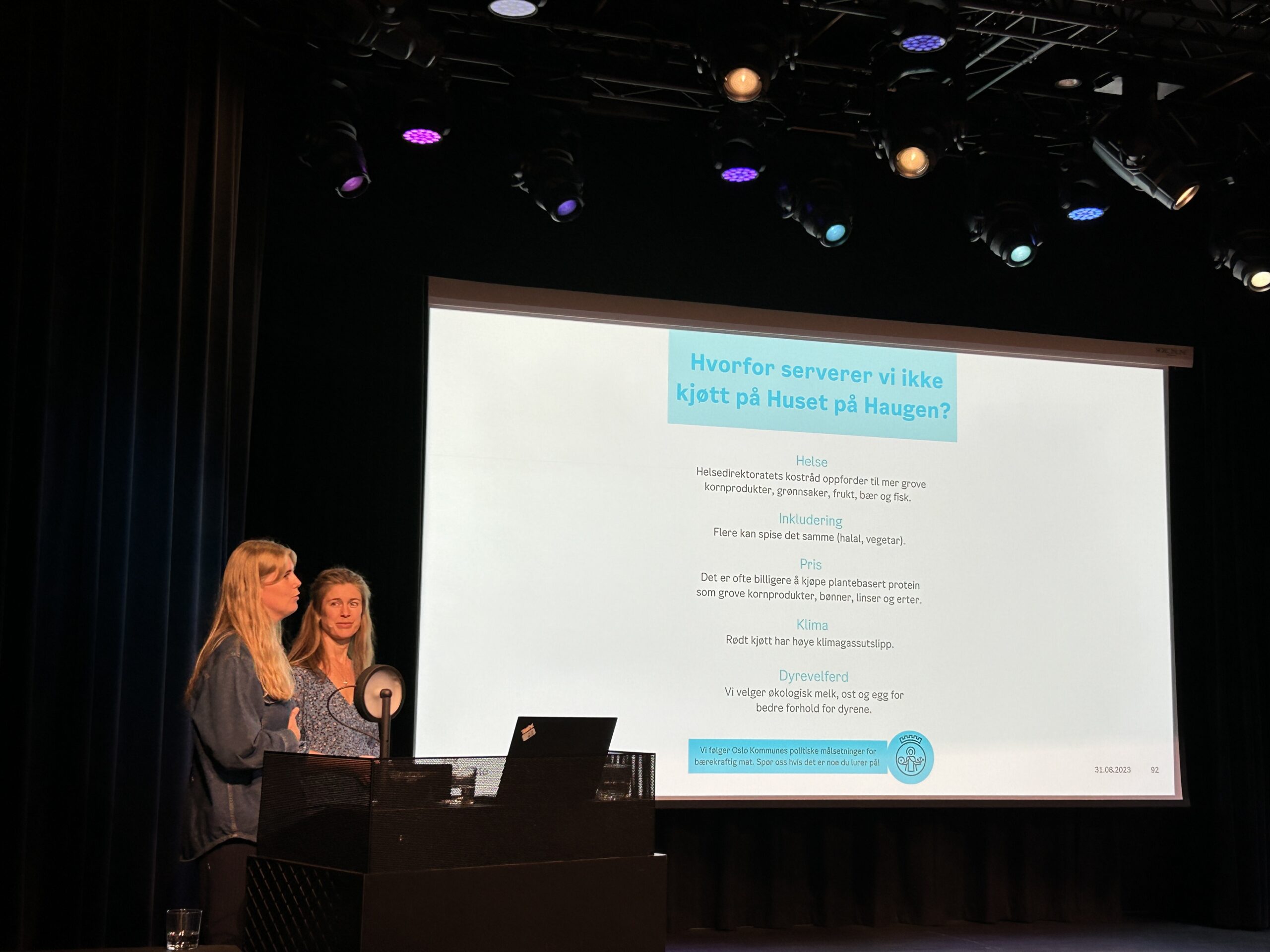
Ida Aaboen and Åslaug Asgeirsdatter Ullerud told about the exciting work done at “Huset på Haugen”, the youth center at St. Hanshaugen.
Competing against “fast food” and energy drinks is also a reality for the Health Agency. They will offer 37,000 young people in Oslo municipality a free, meat-free and healthy meal. The “free school meal” project is well under way, all upper secondary schools are already enrolled in the project phase and the secondary schools are well on their way.
There were probably several people in the room who would like to be served a meal by Løkka farmers Peter Dyrdal Nielsen and Danny Elvestad. In the middle of the Sofienberg park, they grow vegetables and prepare food for seven kindergartens at the Grünerløkka city district. Here the children are involved in everything from farm to table.
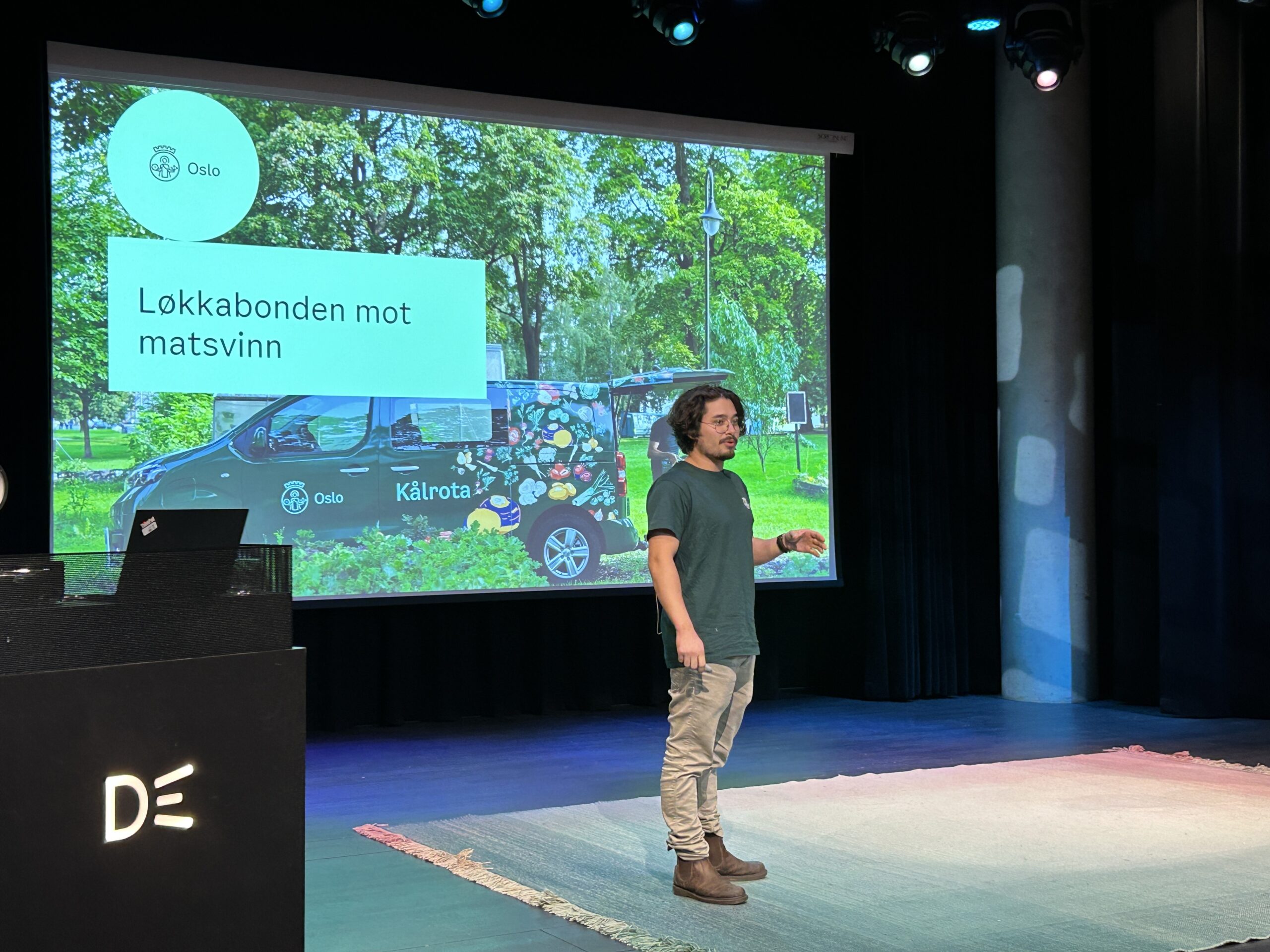
Danny Elvestad spoke enthusiastically about how they actively involve the kindergarten children in everything from growing to harvesting.
The Agency for Urban Environment showed that we don’t necessarily have to have our own garden to make our meals better. They had entered into a close dialogue with the building’s canteen to get more healthy and plant-based food on the menu. The Nursing Home Agency was able to tell about several measures introduced to reduce food waste. The Agency has, among other things, initiated a project where food that is thrown away is weighed. That way, they get a greater overview of what is thrown away; from sauce to potatoes.
It must be on the agenda in all agencies and city districts.
Oslo municipality is an important market player, buying food for approx. 36 billion annually and has great purchasing power. – We have to think about how Oslo municipality can use procurement to turn us in a more sustainable direction. Food that is good for health is good for the planet, said Espen Nicolaysen, section leader for social responsibility in the Agency for Development and Improvement (ADI).
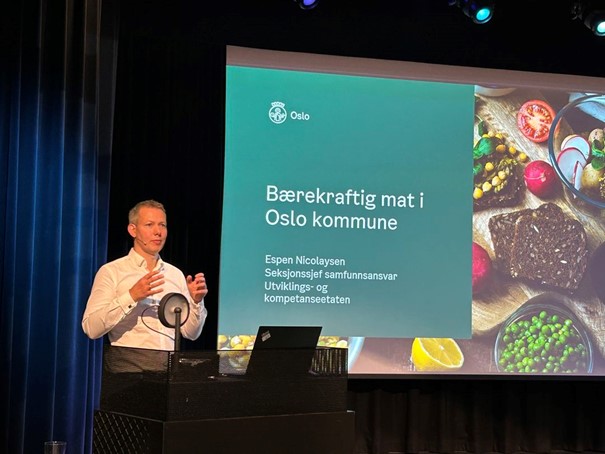
Espen Drønnen Nicolaysen was keen to point out that ADI can assist agencies and city districts in their work for more sustainable food in Oslo municipality.
Changing habits is difficult, and several districts and agencies have pointed out that there is too little time, finances and human resources to make changes. It was important for Nicolaysen to point out that there is assistance. – In the Agency for Development and Improvement, we have a team on sustainable food. Together we work on measures, share experience and assist the municipality to achieve the goals we have set ourselves. We are happy to assist you, he concluded.
